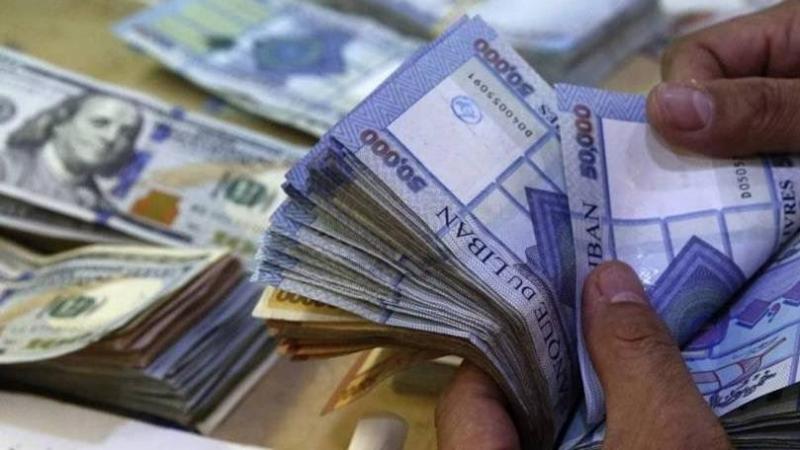Lebanese lawmakers have gone on an early year-end break while debates remain unresolved regarding the latest version of the exceptional capital control law. The government leans toward the option of "write-offs" as the sole means to bridge the estimated losses of around $73 billion. Meanwhile, customer savings in the banking system continue to shrink through painful deductions of dollar-denominated deposits, following the national currency's collapse that led to the erosion of deposits denominated in local currency.
According to a senior financial official, it is surprising that state authorities, both legislative and executive, persist in engaging in futile discussions aimed at developing "innovative" approaches to address monetary and financial issues, disregarding the lessons learned from many countries that experienced more severe imbalances in their budgets and balance of payments. As the worsening crises enter their fourth year, they generate additional repercussions and economic, financial, and living storms.
The ongoing situation, with an uncertain duration amid presidential vacancy and prevailing political turmoil, suggests that delays in approving the final form of the recovery plan, including the challenges in issuing the required financial laws, could dissipate hopes pinned on reaching a resolution for the Lebanese file with the central administration at the International Monetary Fund. As a result, all vital files will be postponed until the regular functioning of constitutional institutions and the formation of a new government with full powers.
The financial official remarked that the ongoing delays in parliament regarding the capital control law, which was supposed to be issued in the early weeks following the crisis explosion, align with the current government's methodology, which has repeatedly modified its approach to addressing incurred losses as a starting point for restructuring and organizing the financial sector. However, it has not implicitly abandoned the "write-off" theory but has sought to soften the terms by stating that the size of the gap indicates that the Central Bank cannot return all deposits to banks in foreign currencies. Consequently, banks cannot return the majority of depositors' funds when they request them and in the same currency.
While the government theoretically commits to protecting the rights of $100,000 for each depositor, stating that higher amounts will be addressed through a special recovery fund with ambiguous and questionable resources, it reinforces the state's prior renunciation of contributing to explicit commitments. It pointed out that, "Given the anticipated general budget deficit in the coming years and the large public debt relative to GDP, any connection between the general budget and losses in the banking sector through the primary surplus in the budget, even on a potential basis, is fundamentally unacceptable as it undermines the pillars of the reform program and will not serve economic recovery, nor the International Monetary Fund at present."
The subsequent amendments, according to the official, do not eliminate doubts about the state evading responsibility for spending most of the incurred gap amounts through public debt and direct financing from the Central Bank, particularly in the electricity sector and random subsidies for goods and materials. It links the allocation of future revenues to the recovery fund to vague conditions starting with the successful implementation of the economic and financial reform program and reducing the public debt to a level lower than targeted in the program to maintain debt sustainability, as well as ensuring a decent level of social expenditure and infrastructure.
According to the list of commitments the government pledged in the preliminary agreement with the IMF mission signed in early April, "Work will be undertaken to pass the capital control law in parliament. It is a long-awaited law to prevent any selectivity in transfers abroad or withdrawals domestically and to protect depositors by maintaining their foreign currency assets in the banking sector as much as possible." Moreover, "Adopting the bank restructuring law will help build a strong banking system focused on funding private sector activities. Capital controls are considered temporary in principle, and the duration of these controls depends on the seriousness and speed of implementing the required reforms."
Meanwhile, the saving share belonging to individuals, professional unions, and companies classified between resident and non-resident deposits is witnessing further shrinkage supported by sharp deductions in executing withdrawal operations within specific monthly quotas. The total deposits have "digitally" reached around $129 billion, down from about $178 billion in real assets benefiting depositors before the crises that led to its downgrade according to World Bank standards to the category of lower-middle-income countries instead of high-middle-income, where it had remained for 25 years.
In the even more bitter backdrop, according to the financial official's analysis, the balance of deposits denominated in foreign currencies has dropped to about $96 billion. The government has pledged to repay about $20 billion within the protection line set at $100,000 per depositor. This means that the current gap of approximately $76 billion effectively represents the essence of the "insoluble" financial and monetary approaches, likely shifting most of the gap's burdens onto depositors and bank shareholders through the proposed mechanism of canceling part of the Central Bank's obligations in hard currency towards banks to correct its capital and close the open account it has in hard currency, replacing these holdings coming from deposits with "rights" bonds without specifying their funding source.




